MARKET OVERVIEW
The Global Recruitment Process Outsourcing (RPO) Market will continue to make gradual shifts from the traditional model of talent acquisition to painting other pictures in the areas of hiring. The process that will materialize overseas would commence at an expectational broad high volume. The RPO would henceforth operate but as a strategic partner in workforce development rather than external hiring agents. Beyond this, this industry expects success support high-volume hiring, absorbing itself into business planning for the long term. The immediate engagement of companies with RPO providers is no longer limited by periods of recruitment. It will depend on these partners to help anticipate workforce changes in a complex global labor trend and to build sustainable pipelines of talent.
As time progresses, this has involved global recruitment, process outsourcing of the RPO, and taking employer branding as well as candidate experience to the next level. Organizations will seek much beyond resumes and interviews; they will expect RPO solutions to influence how a potential candidate views a company. Such a clear reflection of the demands will be from the possibility of bringing talent with the corporation's culture in a digitally open and transparent world. RPO contracts of the future will contain obligations around such things as storytelling, candidate experience management and optimizing the onboarding process. The RPO will also invest in innovative ideas that personalize the hiring journey at scale, which is something very difficult for internal teams to do consistently.
Technology will serve as a strong enabler, but it will not shape today's discussions. Automation and AI will still be part of the equation; however, their utilization will change toward analytics and predictive modeling. Less focus on replicating human decisions for RPO; more alignment through sharpened insight for decision-making purposes will lead RPO providers. Predictive hiring models will lead to better retention initiatives. Basically, the Global Recruitment Process Outsourcing (RPO) Market will create more sophisticated data layers to support inclusion and diversity targets not as checkbox metrics but as integral parts of workforce design. This suggests that RPO services and their HR technology platforms will work together to develop intelligent ecosystems in which data drives real-time decision-making and policy refinement.
Another factor of the future defining the transformation in the coming years is geographic localization. The Global Recruitment Process Outsourcing (RPO) Market would not be following a common model across the globe. There would be hyper-localized strategies crafted by providers concerning the country's economic, cultural, and regulatory conditions so beneficially fulfilling compliance as well as addressing availability, the new wage structure, and shifting job expectations. The changes in the RPO will be really influenced by how mature the local job market is politically, socially, and economically within the respective country. Such an approach would be able to give all the organizations very specific talent strategies, which generic recruitment models can never deliver.
Global Recruitment Process Outsourcing (RPO) market is estimated to reach $22,962.8 Million by 2032; growing at a CAGR of 12.9% from 2025 to 2032.
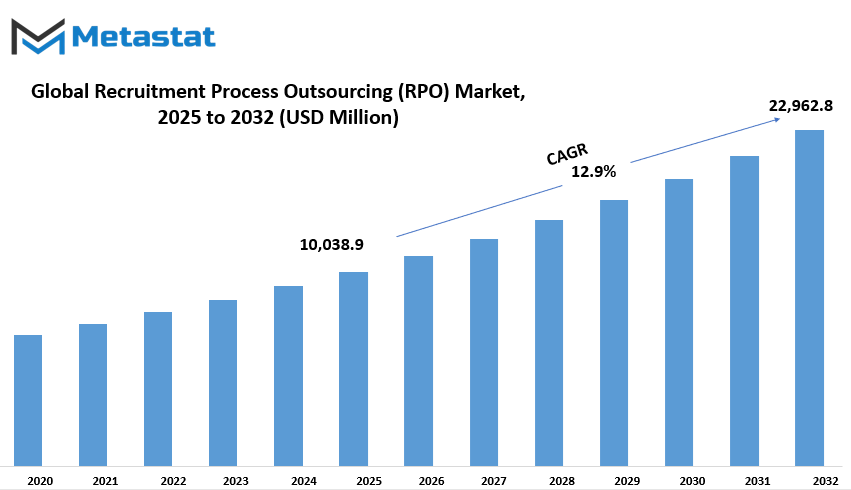
GROWTH FACTORS
Steady growth continues in the Global Recruitment Process Outsourcing (RPO) market, propelled primarily by the emerging need for hiring solutions that are cost-effective and scalable. Companies in different industries are becoming increasingly pressed to find top talent in a short time while keeping recruitment costs low. RPO providers come into play by taking over recruitment work partially or completely, facilitating access to competent personnel and streamlined systems for hiring processes. Hence, organizations save time and money while having their interests served by efficient new hiring. As the order of competition for talent becomes higher, more businesses have turned to RPO to fulfill their hiring needs without taxing their internal HR teams.
Cloud-based recruitment technology is another major market propeller. This technology allows firms and RPO providers to conduct hiring processes from anywhere, which is critical when hiring across regions or even countries. Cloud solutions improve applicant tracking by providing real-time updates and sharing with all hiring data in a central place. It also allows hiring to be scaled up and down depending on the particular need of a business at that moment. This flexibility is one of the key contributors to the rising use of cloud recruitment, which thus forms part of the push for the growth of the RPO market.
Some challenges may slow it down. The most critical issue is data privacy: hiring involves personal and often private information, which an organization must carefully protect. RPOs are also bound by local labor statutes, which differ widely from jurisdiction to jurisdiction. Such statutes make compliance for a global RPO quite difficult, and in most cases, a client and provider would be left to face very dire consequences, should the RPO provider fail to meet such labor requirements. Furthermore, companies question how much control they will remain with, undergoing a recruitment process through a third party. They feel that by outsourcing all recruitment functions, it will significantly reduce control over important, fundamental decisions and processes.
But, despite RPO's vast challenges, the sector has much potential, especially in developing economies. Growing companies in those regions will need relevant hiring solutions to cope with rapid growth. There would also be an increase in the use of AI and analytics in recruitment processes. These instruments greatly speed up selecting the requisites, improving hiring decisions, and shortening the time involved in hiring. They can create great value for RPO, achieving great results and making services very important for companies worldwide.
MARKET SEGMENTATION
By Type
With time, the global RPO market is experiencing steady growth with recognition given to the value of outsourcing hiring functions. All companies use RPO providers to streamline recruitment processes in time and cost savings. Recruitment process outsourcing allows companies to find and complete the hiring of their human resources in a faster manner. External providers are used because they have the expertise to manage all or part of the hiring process, in contrast to companies that do it themselves. These providers also utilize tools and techniques that improve recruitment quality and efficiency while they may not be easily available or applicable in-house.
The RPO market will continue to grow as companies demand flexible solutions for workforce solutions. Scalability-increasing or ramping down of recruitment efforts depending on demand-is probably the biggest reason companies want the RPO to be used. The ramping-up process is very useful, for example, during accelerated growth of such projects or when hiring requirements could change with seasonal shifts or business expansion in mind. RPOs are providing organizations with more talent pools, cutting-edge recruitment technology, and data driven insight to help remain marketable in securing top talent.
Different types of services constitute RPO, depending on how organizations use them. The types of RPO services are further segmented into On-demand ($5,431.7 million), Function-based, and Enterprise-based. The On-demand RPO fits perfectly for short-term support required by companies, e.g., in hiring surges or for a specific temporary project. They call in external help on a just-in-time basis, without long-term contracts. Function-based RPO covers recruitment within a specified department or role of a company. A business may hire an RPO provider to look after only its sales or IT. Enterprise-based RPO services correspond to the complete takeover of all recruitment processes across the entire organization, producing uniformity and a coordinated approach to hiring.
With more organizations facing challenges regarding qualified candidates and fast-moving job markets, a foreseen demand for RPO solutions may see its fair share. Companies are not only looking at quick fixes or sporadic hiring solutions for their business; they are looking for long-term support offerings in line with their business objectives. Instead, they want their RPO engagement to lead to better hiring results and greater efficiency than normal and eliminate the pains that come with hiring. This rising trend of RPOs will continue to shape the new age recruiting in industries, thus being a major player in modern workforce planning.
By Service
Due to effective methods being sought by companies to manage their hiring necessities, the Global Recruitment Process Outsourcing (RPO) Market is growing at a steady pace. The market is segmented by service into On-site and Off-site, with each having distinct control-level, cost, and convenience considerations depending on the requirements of the organization.
On-site RPO means that the recruitment team works within the company. This strengthens the connection between the hiring team and the company. Communication is better secured, as the recruiters can realize the company culture, value system, and expectations. On-site recruiters are promptly adaptable to last-minute changes; they can attend meetings in real-time and build robust relationships with hiring managers. This sometimes leads to faster hiring decisions and more matching selections for open positions. For companies struggling to fill high-volume-hiring positions or in urgent need of good recruits, this is a significant winning point.
On the contrary, Off-site RPO provides much more flexibility. In this arrangement, recruitment teams are working from a different location, usually from the provider's central office. This potential savings on office space and equipment becomes a cost-effective solution for companies that require expert hiring assistance but do not need someone on their premises all the time. Off-site RPO providers usually have an extensive candidate pool and tools and insights that help them to effectively reach the right talent.
The decision to choose On-site or Off-site services will depend on many things, including the size of the company, the number of people it needs to hire, and the level of control to be exerted over the process. Some companies may even opt for a mix of both, depending on their needs from time to time. Such organizations may post an On-site team for key positions that require a lot of coordination, while resorting to an Off-site team for high-volume fast hires or seasonal positions.
In conclusion, both On-site and Off-site services are integral segments of the RPO market that help companies refine their hiring processes by saving time and costs while making sure the right candidates are put forward. As more companies acknowledge the value of outsourcing the recruitment process, there is no denying that the demand for these services will keep increasing.
By Enterprise Size
Increasingly, the Global Recruitment Process Outsourcing (RPO) Market), is expected to see greater growth, as companies look toward more efficient and cheaper means of dealing with hiring issues. One of the major categories into which this market can be segmented is enterprise size, which divides enterprises into small and medium enterprises (SMEs) on the one hand and large enterprises on the other hand. Each of these has its way of hiring and different requirements that determine its need for RPO services.
SMEs usually have constrained resources, both financially and in terms of manpower. Therefore, they usually seek RPO solutions with the maximum flexibility and lowest cost such that they are able to manage everything along the lines of posting ads for jobs and interviewing candidates. These companies may not have in-house HR departments, so they rely on RPOs very much to ensure they get the right people without wasting time or money. For SMEs RPO becomes a very feasible option that assists them to be competitive while expanding their teams without necessarily taking all the pains by themselves.
On the other hand, in most cases, large enterprises have all the resources that go into having internal HR departments; nevertheless, they still resort to the assistance of RPO providers. Larger enterprises often have much complex and broad recruitment needs, especially in large-scale recruitments or searches for talents worldwide. These RPO consultations enable large companies to manage high volumes of applications, thereby streamlining their hiring process to fill roles faster and more efficiently. These large enterprises have RPO service variants that facilitate the entry of high-caliber professionals while retaining elegant regional or departmental consistency.
The trend indicates that both SMEs and large enterprises are in need of RPO solutions shows that corporate enterprises recognize and appreciate the advantages of outsourcing recruitment commissions irrespective of the size. Whether it was a matter of cutting costs, saving time, or enhancing recruitment quality, these are becoming avenues where businesses see value in confiding those sectors to the specialized provider. This blossoming trust will, in turn, shape the market even in its growth. Further growth in the RPO market is feasible as more organizations seek to improve their recruitment processes.
Thus, from a very broad angle, it is clear that in the Global RPO Market segmentation on enterprise size, Small and Medium Enterprises and Large Enterprises have both found value in outsourcing recruitment. Their needs and reasons vary greatly, but the intent is the same: to find the right people using the most efficient means possible.
By End-use
It is the global Recruitment Process Outsourcing (RPO) industry that continues to flourish every day as industries seek better ways to manage their hiring and employment needs. RPO is when companies partially or fully outsource their recruitment activities to one or multiple third parties. With this practice, organizations save time, costs, and access talented professionals that specialize in hiring. The RPO market is made up of many end-use sectors driving the surge in business for this service, each having its own unique reason(s) for taking on RPO services. BFSI, Healthcare, Manufacturing, Information Technology-and-Telecom, and Education are some of the sectors that could be singled out as the greater contributors, while others serve to broaden overall rises in demand.
As the line between banking, financial services, and insurance, the BFSIs have several roles under which they require swift and accurate hiring. In doing so, these companies have to face different regulations, and finding the right talent becomes critical. RPOs come to help these BFSI companies, by not only bringing in a faster recruitment cycle but also providing background checks and compliance support, while being effective in terms of quality. The health care sector has had an unquenchable thirst for trained professionals; this thirst was made even more acute with the growing demand in its fulfilling the needs of aging population and new health challenges. RPO is beneficial to hospitals and clinics in fast tracking the recruitment process for some of the most urgent positions in their facility, which is critical for the support of patient care.
Manufacturing is another industry getting into RPO. With the dynamics of industrialization and changing technologies, coupled with the shortage of skilled labor, manufacturers are now turning to RPO houses, hoping that they can improve their recruitment and talent retention models. This will help meet production deadlines and minimize turnover. Basically, the IT-to-Telecom sector sees faster innovation, leading to a constant demand for talent with specialized skills. There are times when companies need to hire technical personnel within a very critical timeline, and without RPO providers, sourcing candidates who would fill these needs is a big challenge.
Also, the Education sector has been on the rise with the use of RPO. Schools, colleges, and training institutions usually hire for a short time but need to hire qualified teachers and staff at specific times. An RPO then smoothens the process and gives a better hire. Apart from these major sectors, some branches such as retail, logistics, and government are also adopting RPO service for the purpose of streamlining recruitment processes, thus relieving their internal HR teams from pressure.
The global Recruitment Process Outsourcing (RPO) Market is still projected to grow as businesses continue to adopt better recruitment strategies. RPO is a strategic investment in flexibility and efficiency and then building a future-ready workforce.
|
Forecast Period |
2025-2032 |
|
Market Size in 2025 |
$10,038.9 million |
|
Market Size by 2032 |
$22,962.8 Million |
|
Growth Rate from 2025 to 2032 |
12.9% |
|
Base Year |
2024 |
|
Regions Covered |
North America, Europe, Asia-Pacific, South America, Middle East & Africa |
REGIONAL ANALYSIS
The Recruitment Process Outsourcing (RPO) Market is an international affair; regions and specific countries begin to understand the whole geography of interaction: host divided markets into five regions: North America, Europe, Asia-Pacific, South America, and Middle East and Africa. Within these regions there are further divisions into the countries that constitute an important part of the RPO market. For North America, for example, there are the United States, Canada, and Mexico. These three have had their infrastructural developments and large businesses that create and increase the demand for recruiting solutions on an efficient basis, making them part of the other contributors to the global RPO market.
The employment industry as well as the economies in Europe has UK, Germany, France, and Italy known for their respective organized employment sectors and strong economy. Accompanying these are the Rest of Europe which also participates in the market. Hiring organizations in these countries are ever on the lookout to find better ways of hiring competent people that will take less of themselves both time and cost. Such is the avenue through which RPO services come into play in this industry. Asia-Pacific is yet another fast developing in terms of RPO market. Included under this are India, China, Japan, and South Korea, with some Rest of Asia-Pacific. The number of businesses keeps increasing, as well as the population in these countries which leads to greater demands for recruitment help. Some of them operate in this region and look for a partner that can better manage this process professionally and in the most cost-effective way possible.
The South American continent, for example, has also made moves into this market, especially with Brazil and Argentina being the leading players. The joining figures may not be as heavy as in North America or Asia, yet this is a territory where the demands on organized recruitment services is ripe. The Rest of South America only serves to reiterate this movement: The Rest of South America is also contributing to this trend, especially as more companies get to realize the advantages of outsourcing their hiring activities. Finally, the Middle East & Africa region consists of GCC Countries, Egypt, South Africa, and the Rest of Middle East & Africa. Interest in new-age hiring is developing in these regions. For instance, countries like the UAE and Saudi Arabia are growing their businesses and looking for external recruitment services to cater to their staffing needs.
This division of the RPO market by region helps businesses strategically develop associated strategies to identify where they can expand the services or identify new talent partners in their business plans.
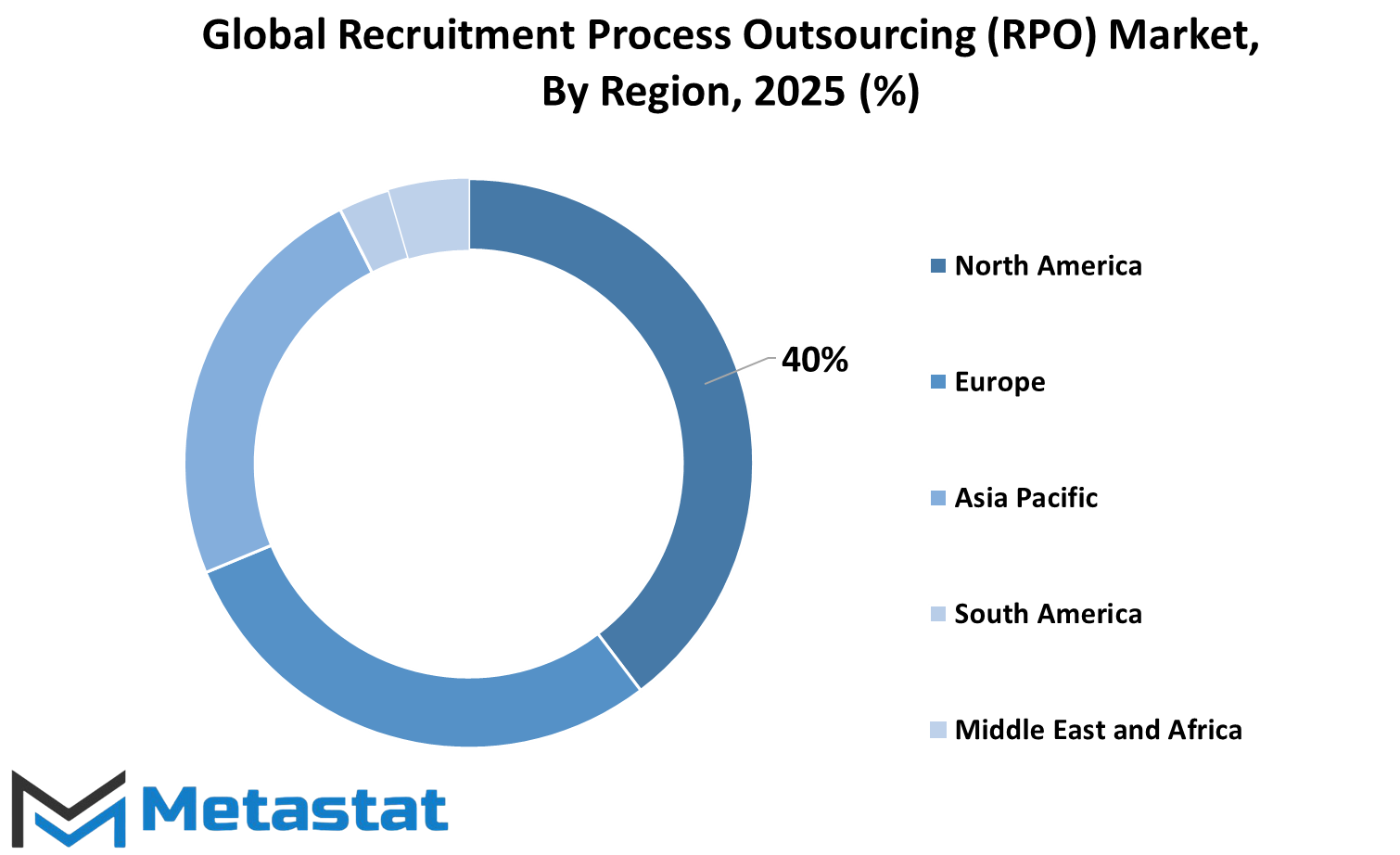
COMPETITIVE PLAYERS
The Global RPO Market has slowly grown in demand as companies notice the need for hiring alternatives that would ease their internal HR team burdens and deliver innovative ways of finding and retaining talents. Consequently, there has been a rise in demand for recruitment outsourcing services, as many companies increasingly outsource recruitment activities to third parties. Outsourcing recruitment helps save time while cost savings are achieved as companies gain recruitment firms' access to skilled professionals specializing in recruiting specific talent.
Some of the leading RPO providers include ADP, Inc., Alexander Mann Solutions (AMS), Cielo, Inc., Hudson Global Inc., IBM Corporation, ManpowerGroup, Korn Ferry, PeopleScout - A TrueBlue Company, Pontoon Solutions, Randstad N.V., Sevenstep, and WilsonHCG. They are the providers who offer end-to-end service recruitment services or very specific hiring needs towards which they use a combination of technology, industry experience, and skilled recruiters on which they rely to find the best candidates, besides helping clients in this regard to remain competitive in the market.
RPO is very attractive to companies mainly because of the flexibility that it offers. Instead of bringing in an entirely in-house recruitment function, the commissioning company can slice services up and down according to the demand for hiring. For example, when there is a lot of hiring at once, or during the busy seasons, an RPO provider can take big volumes of applications so that the quality is not being compromised. This flexible model further allows internal teams to direct time and resources toward other strategic initiatives.
Surely, apart from flexibility, RPO also makes available to the client advanced technology and data-driven insight into the hiring process. Help to identify trends, and further enhancements in candidate engagement, and metrics such as time-to-hire or cost-per-hire can be tracked with such insights. All this information can help organizations work towards better hiring decisions and ultimately build a better workforce. The partnerships with very well-established RPO firms will, in turn, give companies a broad talent pool and reduced risk of poor hiring decisions.
The competition amongst the RPO for talent keeps growing; hence, the RPO market will keep widening as more and more companies derive the benefits of this model. Among those benefits, improved quality of hires and better alignment with long-term business objectives is among the most relevant ones witnessed by companies adopting the model. As the workforce isn't going to be static, strong support in recruiting will remain critical, making it easy for top RPO providers' expertise to pull companies ahead in hiring the right people at the right time.
Recruitment Process Outsourcing (RPO) Market Key Segments:
By Type
- On-demand
- Function-based
- Enterprise-based
By Service
- On-site
- Off-site
By Enterprise Size
- Small & Medium Enterprises (SMEs)
- Large Enterprises
By End-use
- BFSI
- Healthcare
- Manufacturing
- IT & Telecom
- Education
- Others
Key Global Recruitment Process Outsourcing (RPO) Industry Players
- ADP, Inc.
- Alexander Mann Solutions (AMS)
- Cielo, Inc.
- Hudson Global Inc.
- IBM Corporation
- ManpowerGroup
- Korn Ferry
- PeopleScout - A TrueBlue Company
- Pontoon Solutions
- Randstad N.V.
- Sevenstep
- WilsonHCG
WHAT REPORT PROVIDES
- Full in-depth analysis of the parent Industry
- Important changes in market and its dynamics
- Segmentation details of the market
- Former, on-going, and projected market analysis in terms of volume and value
- Assessment of niche industry developments
- Market share analysis
- Key strategies of major players
- Emerging segments and regional growth potential



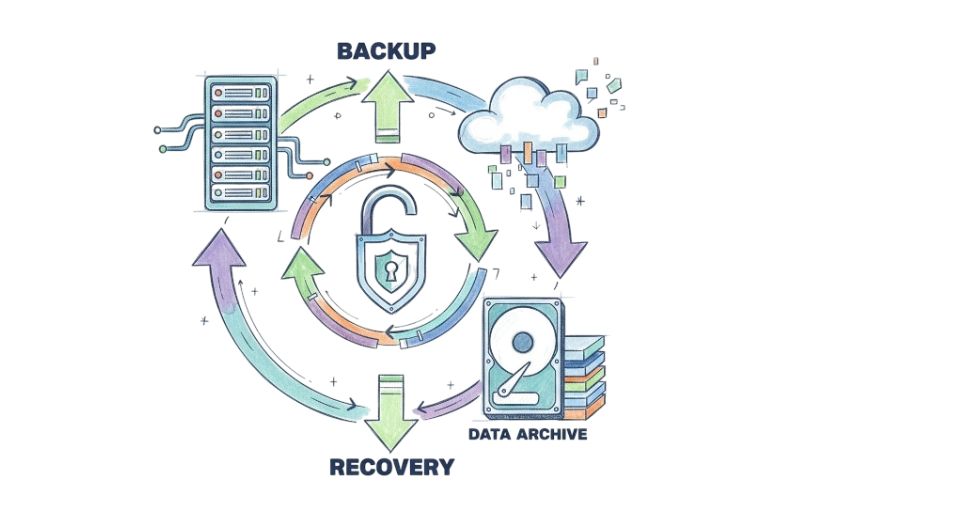
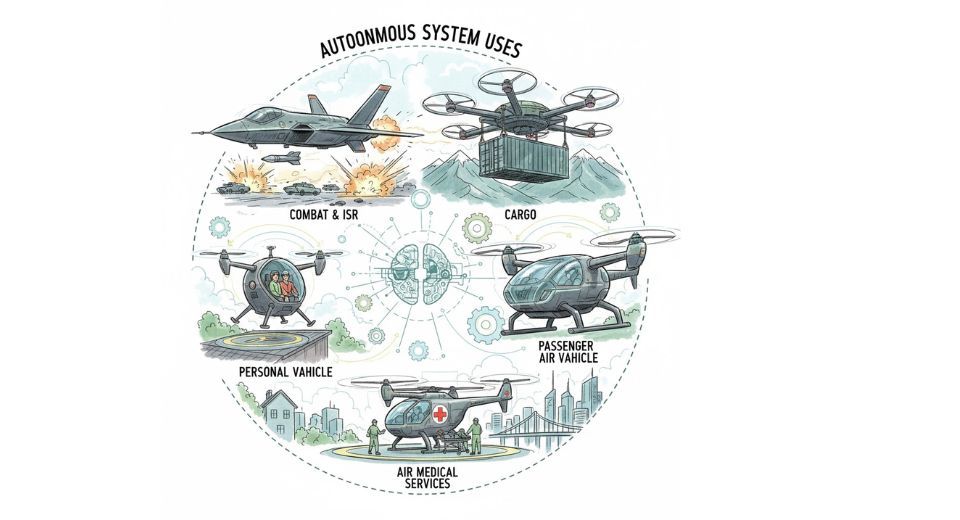
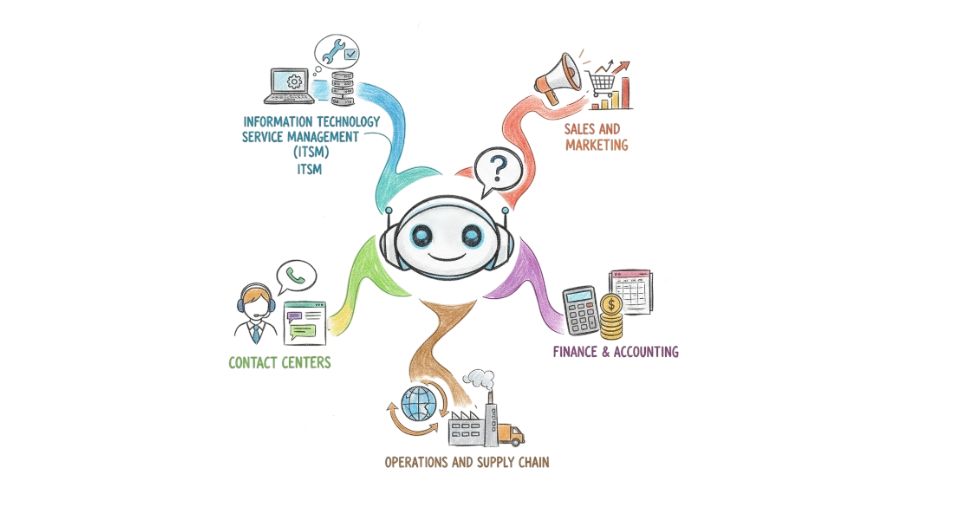


 US: +1 3023308252
US: +1 3023308252






